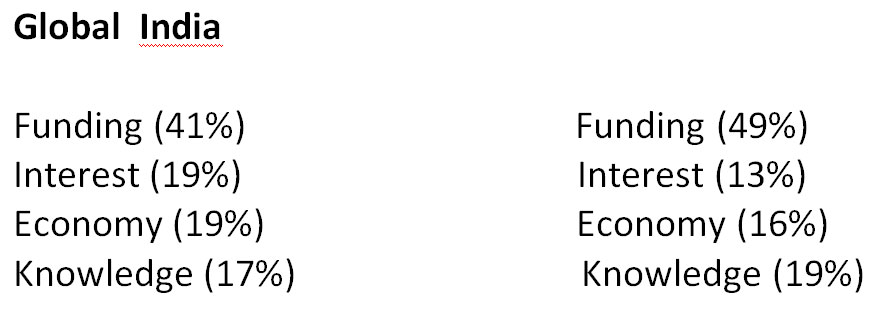New Delhi: The pandemic spread its tentacles fast and suddenly most countries were in the throes of the lockdown, impacting jobs and livelihood. Entrepreneurialism is fraught with risks, so would have taken a back seat during the pandemic? Wrong? A global survey by Ipsos of more than 20,000 men and women in 28 countries shows entrepreneurialism was alive across all global markets, polled – at least 3 in 10 (30%) global citizens claim to have started a business and 1 in 10 (13%), say they have started an interest group; 4 in 10 urban Indians (45%) claim to have started at least 1 business in the time of the pandemic and 4 in 10 (42%) claim to have started an interest group.

“The pandemic and the lockdown made many rethink their priorities, with all the time on the hands, even thinking of new business ideas; for some, it would’ve been to get more freedom from their demanding jobs, for others it would’ve been the only recourse with job losses reaching a new high during the pandemic,” says Amit Adarkar, CEO, Ipsos in India.
One thing is certain, the Entrepreneurial Spirit was found to be bullish across most markets – for global citizens, entrepreneurial spirits were very high and high at 32% and 37% respectively. Among Indians 51% was Very high, 26% was high, 17% moderate, and 7% low.
“Entrepreneurial Spirit was arrived at by capturing views on at least 100 attributes making it a highly rigorous process,” added Adarkar.
Top attributes for Entrepreneurship
Entrepreneurial Spirit was defined by some of these top attributes among global citizens, that they felt they possessed: strong work ethic (74%), disciplined (73%), good planner (69%), flexible (69%), resourceful (68%), self-motivated (68%), future-oriented (68%), passionate of what they do (67%), good money manager (66%), a strong belief in self (66%), creative (64%), can deal with failure (63%), can control my destiny (60%), among others.
Is Entrepreneurialism encouraged?
Entrepreneurialism is provided major thrust in India – urban Indians feel all key stakeholders of Banks (64%), business/ private sector (60%), and govt (54%) – are actively assisting entrepreneurs to realize their dreams. Global citizens in comparison credit their institutions of banks (32%), business (32%), and govt (29%) far less.
“For a job deficit market like India, entrepreneurialism is given huge emphasis, as it generates jobs and provides employment to many. Sometimes the idea is so strong that funding and systems all fit together with least effort. But sometimes, in a saturated market, with no takers, the plans fall through,” said Adarkar.
Barriers to Entrepreneurialism
Everything is not hunky-dory. Global citizens and Indians have identified some major roadblocks to entrepreneurialism – and both interestingly face the same hurdles: of funding, lack of interest, economy, and knowledge.
Though funding was far more pronounced.


















